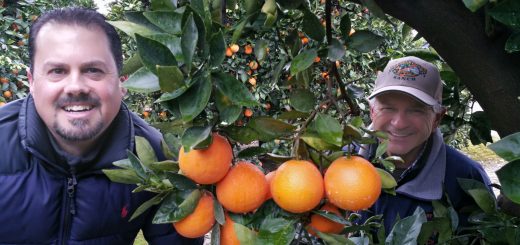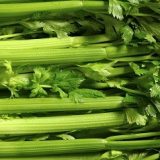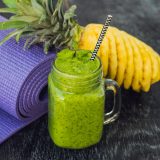Last of Springtime's Local Artichokes
Free Bag of ‘Chokes
Last of the local springtime artichokes available now — plus, get a bag free this week.
By Robbie Sigona
 There are many reasons why I love artichokes. The flavor of locally grown artichokes – baby or regular-sized – is unmatchable, but the reason I love them the most is because of how a few simply steamed chokes brings everyone to the table for a fun appetizer.
There are many reasons why I love artichokes. The flavor of locally grown artichokes – baby or regular-sized – is unmatchable, but the reason I love them the most is because of how a few simply steamed chokes brings everyone to the table for a fun appetizer.
To celebrate this incredible vegetable, we’re offering a free bag of four ‘chokes this week (May 16 – 22) with your coupon when you spend $30 or more!
There is nothing better than watching children peel off a leaf, choose their favorite dip, scrape off the artichoke meat with their teeth and toss the used leaf in the dump bowl – they love it! It’s one of those hands-on dishes where it’s ok to be messy and share a laugh together.
Artichokes are available year-round, but the best time of year for fantastic artichokes is now. Nearly 80 percent of the artichokes grown in California come from Monterey County, home to Castroville, the “Artichoke Capital of the World.” The climate in Monterey County is perfect: the warm and cool air masses meet there, creating summer fog and cool, not-so-dry weather. Artichokes love it.
One of the best-known farms in Castroville is Pezzini Farms. It was founded in the 1930s and is still run by the Pezzini family. We’ve partnered with Pezzini Farms for years to bring in fresh-picked artichokes that are picked, packed and delivered to our stores in less than 24 hours!
If you drive along Route 156 in Castroville, you’ll still see the original farm stand, which has been in operation just about as long as the farm has. Some customers return generation after generation, making it a family tradition to visit the Pezzini family farm stand. There’s just something really special, especially for children, in going right to the farm.
Tony Pezzini, who runs the farm with his dad Guido, says they’re a relatively small operation, so they exert greater control over the harvest.
 “We put a lot of care into it. We really baby the plants and artichokes – and we’re able to do that because of the smaller size of our operation, and I wouldn’t want it any other way,” said Tony.
“We put a lot of care into it. We really baby the plants and artichokes – and we’re able to do that because of the smaller size of our operation, and I wouldn’t want it any other way,” said Tony.
Pezzini farmers pick in the morning and call it quits no later than 1 o’clock in the afternoon. Then the artichokes are taken directly to the cooler, where they are packed inside. That’s what’s different about Pezzini’s artichokes. Some of the bigger farms have to harvest all day long, leaving the harvested artichokes in the field, only to be scooped up at the end of the day for hydro-cooling. By then they’ve been in the sun and have lost some flavor and nutrients.
A quick turnaround from field to pre-cooling helps stop the breakdown process brought on by ethylene gases, which are released by harvested fruits and vegetables. It also helps lengthen their shelf life. Picking in the cool mornings is a natural way to pre-cool the artichokes before they’re moved to the cooler to finish the pre-cooling process.
Artichokes are rich with fiber, potassium, vitamin C and magnesium. In fact, with one medium choke containing about 10 grams of fiber, the FDA has rated artichokes an excellent source of fiber.
Now, back to the baby artichokes. Besides being absolutely adorable, they’re all-edible. Baby artichokes are basically all meat as the inside hasn’t begun to sprout its fuzzy blossom. Babies also haven’t grown thorns yet so there is no reason not to enlist the kids’ help in preparing baby artichokes. My uncle, Paul Sigona, makes the best baby artichokes I’ve ever tasted. His secret…no parboiling, just sautéing after they’ve been striped down to the tender part. We have a few baby artichoke recipes on our blog too.
There are many ways to cook artichokes and even more ways to enjoy them – dip them in butter, mayo or aioli, stuff them with bread crumbs, garlic and olive oil, or eat steamed artichokes plain with a squirt of lemon– no dip necessary! Check out our artichoke recipes, including one for: Grandma Pauline’s Traditional Sicilian Stuffed Artichokes.










